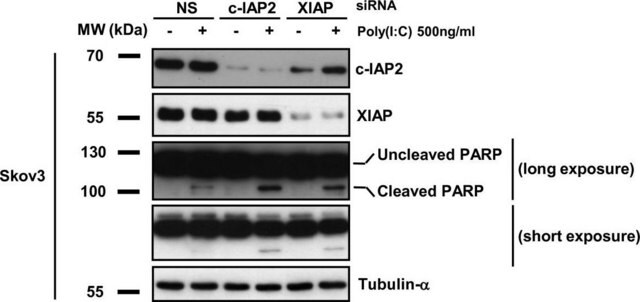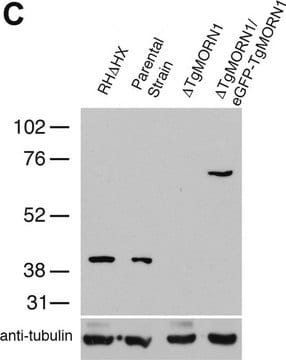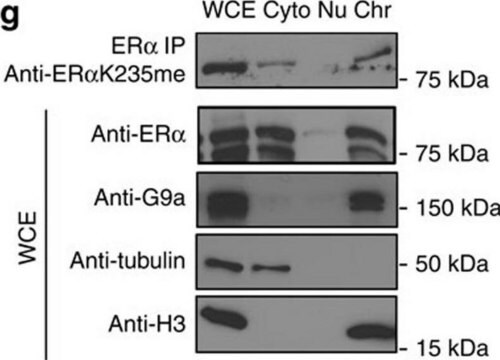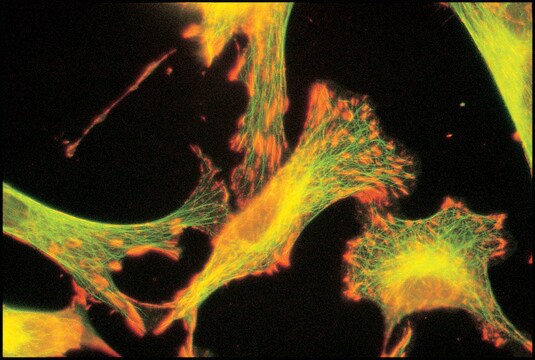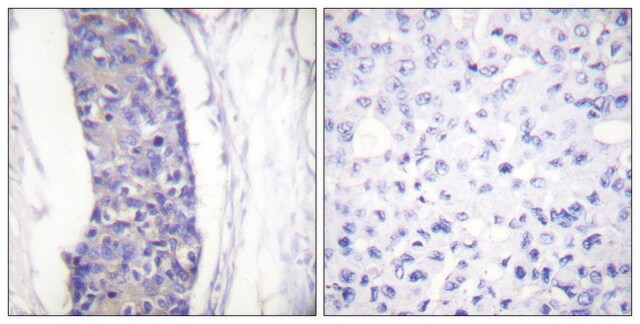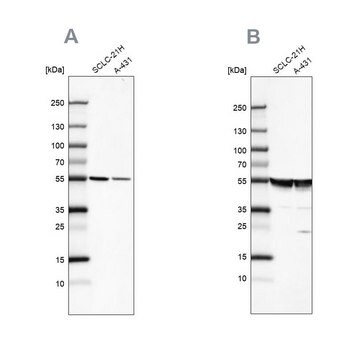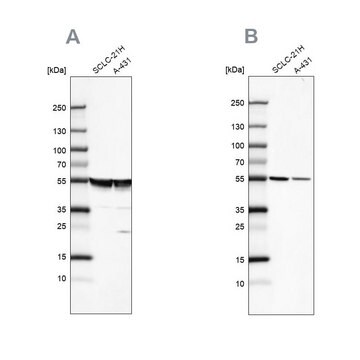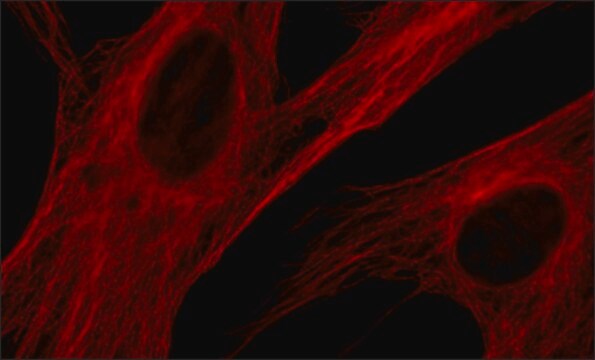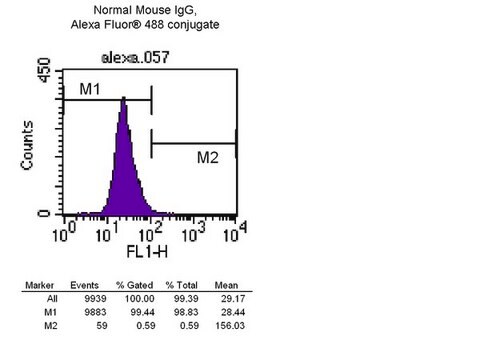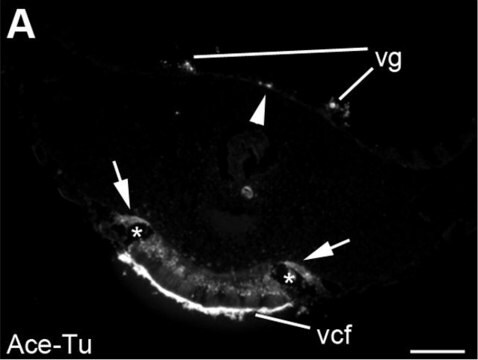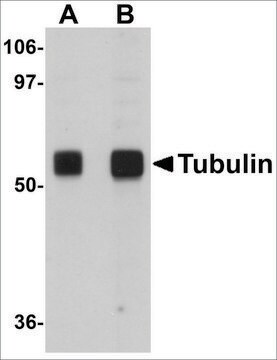T8203
Anti-TUBA1A (TUBA3) Antibody

mouse monoclonal, AA13
Synonym(s):
Anti-Tuba1a, Anti-Tubulin, α1A
About This Item
Recommended Products
Product Name
Anti-α-Tubulin antibody, Mouse monoclonal, clone AA13, purified from hybridoma cell culture
biological source
mouse
Quality Level
conjugate
unconjugated
antibody form
purified immunoglobulin
antibody product type
primary antibodies
clone
AA13, monoclonal
form
buffered aqueous solution
mol wt
antigen ~50 kDa
species reactivity
human, rat, mouse
packaging
antibody small pack of 25 μL
enhanced validation
independent
Learn more about Antibody Enhanced Validation
concentration
~2.0 mg/mL
technique(s)
immunocytochemistry: suitable
immunohistochemistry: suitable
immunoprecipitation (IP): suitable
indirect ELISA: suitable
western blot: 1-2 μg/mL using Neuro-2a cell extract
isotype
IgG1
UniProt accession no.
shipped in
dry ice
storage temp.
−20°C
target post-translational modification
unmodified
Gene Information
human ... TUBA1A(7846)
mouse ... Tuba1a(22142)
rat ... Tuba1a(64158)
Related Categories
General description
The encoded protein structure contains core of two β-sheets enclosed by α-helices. TUBA1A is characterized with an amino-terminal domain with the guanine nucleotide-binding region, an intermediate domain associated with interprotofilament lateral contacts and the modulation of tubulin curvature, and a carboxy-terminal domain that contains region involved in interacting with microtubule-associated proteins (MAPs) and molecular motors, such as kinesins and dynein.
Immunogen
Application
Biochem/physiol Actions
Target description
Physical form
Disclaimer
Not finding the right product?
Try our Product Selector Tool.
Storage Class
10 - Combustible liquids
flash_point_f
Not applicable
flash_point_c
Not applicable
ppe
Eyeshields, Gloves, multi-purpose combination respirator cartridge (US)
Choose from one of the most recent versions:
Already Own This Product?
Find documentation for the products that you have recently purchased in the Document Library.
Customers Also Viewed
Our team of scientists has experience in all areas of research including Life Science, Material Science, Chemical Synthesis, Chromatography, Analytical and many others.
Contact Technical Service
